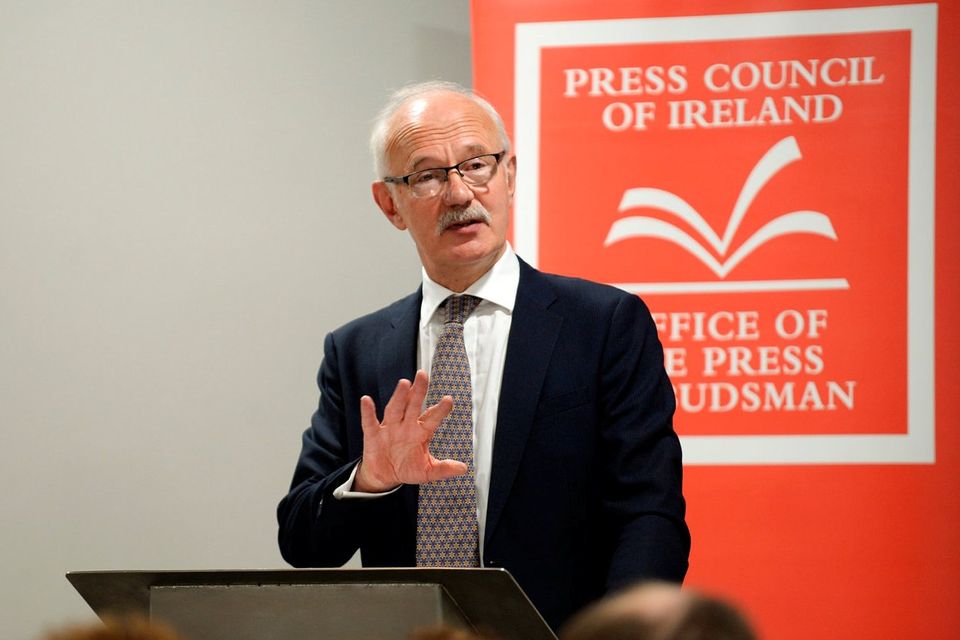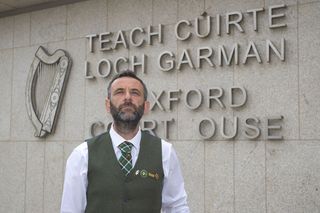Social media 'threatens freedom of press'
Press Ombudsman Peter Feeney speaking at the launch of the report yesterday. Photo: Caroline Quinn
Social media platforms which are not subject to any form of regulation represent a significant threat to press freedom, the chairman of the Press Council of Ireland has warned.
Seán Donlon said at the launch of the 2017 annual report of the Press Council and the Office of the Press Ombudsman in Dublin yesterday that "election and referendum campaigning in Ireland has until now taken place in a fairly regulated environment".
He pointed out that the press, broadcasting and advertising sectors were subject to codes of practice and standards. "In recent campaigns, however, in Ireland and elsewhere, it is becoming clear that a lot of campaigning is taking place in the entirely unregulated and opaque social media [platforms]," he said.
Mr Donlon said the decision by Facebook to refuse to take referendum advertising that was funded from outside the State, and the subsequent decisions by Google and YouTube to cease carrying any referendum advertising, was a recognition they were an influential factor in determining the outcome of elections and referendums.
"It is essential governments and international organisations such as the European Union now address the disproportionate and unaccountable power of the social media. There has to be an acceptance that responsibility goes with power," he said.
Mr Donlon also told the meeting that a review of the Defamation Act was now seriously overdue.
He said that disproportionate defamation awards were having "a chilling effect on press freedom".
At the launch, it emerged that the Office of the Press Ombudsman received 330 complaints last year, up from 261 in 2016.
The complaints related to articles published in national and local newspapers, magazines and online-only news publications.
Peter Feeney, the Press Ombudsman, said: "Interestingly, I upheld less complaints than I did in 2016 and 2015.
"Arguably, that shows our journalistic standards are being maintained."
The highest number of complaints, in 39pc of cases, related to issues of truth and accuracy last year.
A total of 21 cases were ultimately decided by the Press Ombudsman. Five complaints were upheld, 15 were not upheld and in one other case, sufficient remedial action was offered by the publication.
Mr Feeney said at the launch that social media had in his view contributed to "a level of aggressiveness in public discourse which wasn't there 10 or 15 years ago".
Join the Irish Independent WhatsApp channel
Stay up to date with all the latest news















